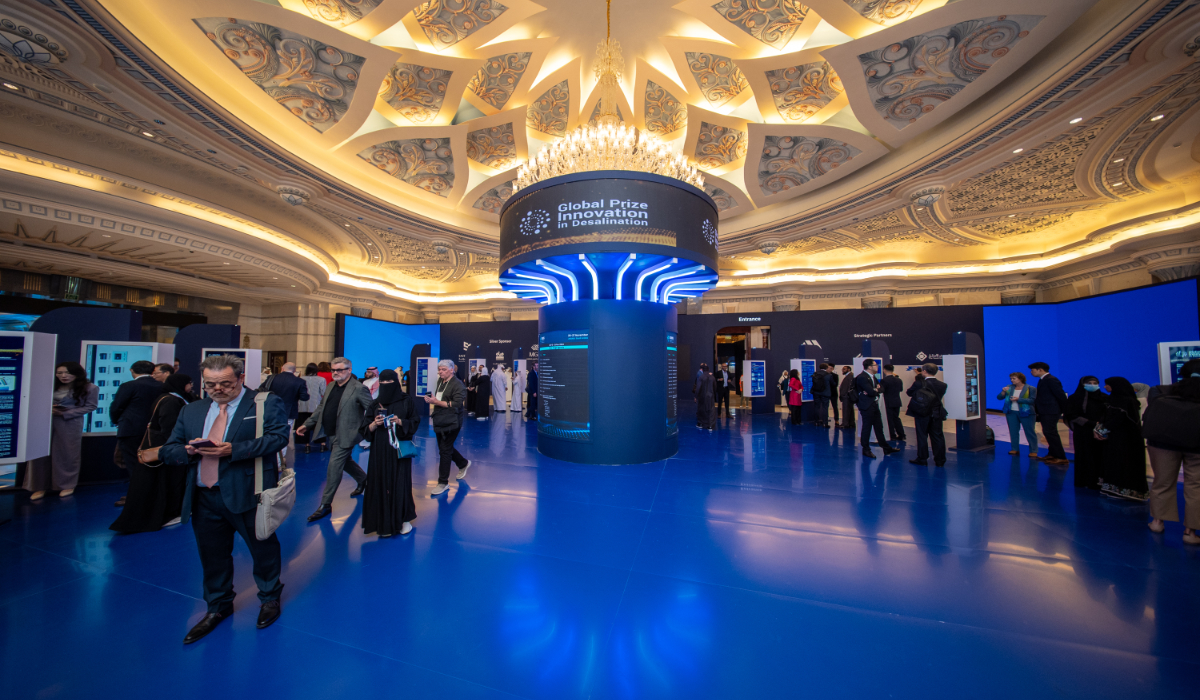JEDDAH: In AlUla and the wider Arabian Peninsula, an ancient method of storing and preserving dates, known as shannah, stands as testament to people’s commitment to the preservation of their cultural and culinary heritage.
Shannah not only showcases the ingenuity of the past but also plays a significant role in the region’s economic and agricultural landscape.
Shannah is crafted from the skin of sheep or goats and is a crucial element in the date storage process in AlUla.

Shannah is crafted from the skin of sheep or goats and is a crucial element in the date storage process in AlUla. (Supplied)
Harvested dates are cleaned, dried, and stuffed into the animal skin, which is then sewn together with palm fronds. The shannah is then left outside to soak up the sun for a period ranging from a few months to five years. The meticulous shannah process ensures the dates’ high quality is maintained throughout.
The demonstration of the shannah process is a highlight of the annual AlUla Dates Festival, providing visitors with firsthand experience of preserving dates in this unique manner.
NUMBER
$400
Their unique taste and cultural significance make these dates highly sought after, and a single shannah of dates can fetch up to SR1,500 ($400).
In alignment with the goals of Saudi Vision 2030, the Royal Commission for AlUla is supporting tourism development in the governorate. This includes the revival of ancient industries such as the shannah, involving the local community in achieving the commission’s goals.

Shannah is crafted from the skin of sheep or goats and is a crucial element in the date storage process in AlUla. (Supplied)
Abdulhadi Suqeer, a Saudi expert in the cultivation and preservation of dates and date palms, told Arab News: “Shannah has a rich history dating back approximately 400 years. This ancient method served as a means for the residents of AlUla to ensure food security throughout the year.
“In recent times, recognizing its cultural significance, the Royal Commission for AlUla has taken steps to revive this heritage, introducing the new generation to the ancient ways of preserving dates,” he added.
FASTFACTS
• Harvested dates are cleaned, dried, and stuffed into the animal skin, which is then sewn together with palm fronds.
• Shannah is primarily used to store one specific type of date known as Al-Helwa Al-Hamra.
Shannah is intricately linked to the geography and culture of AlUla.

Shannah is crafted from the skin of sheep or goats and is a crucial element in the date storage process in AlUla. (Supplied)
“Crafted from goat or sheep skins, the shannah undergoes a meticulous process of cleaning, tanning, and preparation, using materials like lime to maintain flexibility,” Saqeer explained.
In the past, the people of AlUla stored their harvest in a variety of containers, including Al-Jassah — made from lime or gypsum — and Al-Majlad, which is made from green palm fronds.
However, Saqeer said, “The ‘shannah’ method imparts a unique taste and flavor to the dates, avoiding any unnatural substances. Some even add flavors like mint, orange leaves, or basil to enhance the aromatic experience.”

The 'Shannah' is primarily used to store one specific type of date known as Al-Helwa Al-Hamra, which translates to sweet red dates. (Supplied)
The shannah is primarily used to store one specific type of date known as Al-Helwa Al-Hamra, (sweet red dates), which have a low molasses and sugar content, giving the dates their distinct red color. The natural storage process ensures that shannah dates maintain their original taste, flavor, and fragrant smell, particularly when consumed with natural sheep butter or ghee.
Their unique taste and cultural significance make these dates highly sought after, and a single shannah of dates can fetch up to SR1,500 ($400).
“There are individual efforts by some farmers in AlUla to promote the shannah throughout the year, but we need to have a marketing platform adopted by the commission or any of the entities interested in this type of food,” Suqeer concluded.
































